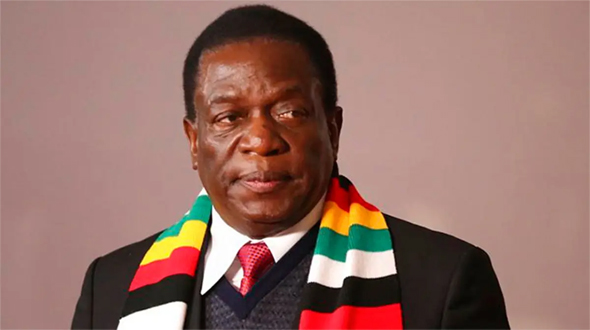Legislator hails President Mnangagwa for policies that are making households food-secure

Leonard Ncube, Online Reporter
MATABELELAND North proportional representation Member of Parliament Cde Elizabeth Masuku has commended the Second Republic led by President Mnangagwa for pro-poor policies, especially in agriculture which has made the province self-sufficient through irrigation.
Debating in Parliament recently, Cde Masuku said what is striking is that Zimbabwe is closer now more than ever before, to the attainment of Vision 2030.
“Reflecting on that, I can confidently attest to the fact that Matabeleland North, in particular, has become food secure because of measures put in place by the 2nd Republic under the enabling leadership of His Excellency Dr E. D. Mnangagwa.
“Countless irrigation schemes meant for the general citizens have been set up in the province and across the entire nation. Thus, ensuring that every household is food secure. I cannot over-emphasise the critical role that the Pfumvudza/Intwasa Programme has played in strengthening food security in Zimbabwe,” she said.
The Government is implementing the Bulawayo Kraal Irrigation Scheme in Binga while the Bubi-Lupane Irrigation Scheme, the country’s model for rural development through agriculture, is already transforming lives in Lupane.
There are several other small irrigation schemes across the seven districts.
Cde Masuku commended President Mnangagwa for spearheading transformative water, sanitation and hygiene (WASH) projects in line with Sustainable Development Goal No. 6.
The Presidential Boreholes Scheme which seeks to have a borehole for each of the 35 000 villages countrywide is underway and Matabeleland North has benefitted significantly.
“Access to clean water is not only a fundamental human right but also a key driver of public health and women’s empowerment. In the Matabeleland region, critical national projects such as the Gwayi-Shangani Dam construction hold the promise of transforming the lives of our citizens. Upon completion, this infrastructure will not only provide access to clean and safe water but will also directly impact women’s lives as they bear the primary responsibility of fetching water,” said Cde Masuku.
She said improved Wash will in turn empower women and girls to allocate their time and energy towards more productive and economically uplifting activities and ultimately contribute to the broader development of our region.
She said women are actively involved in the planning and decision-making processes related to water infrastructure projects to ensure that their needs and concerns are addressed to further advance gender equality and women’s empowerment in the Matabeleland region and beyond.
“Women should be involved in every economic sector not just as labourers, but also as decision-makers and entrepreneurs. It is therefore vital to ensure that women have equal opportunities to participate in the decision-making process, access to resources, and benefits from the fruits of devolution to address issues of gender-based violence and health issues associated with them.
“We must work diligently to address issues related to women’s health, participation in mining sector and their involvement in the devolution agenda. Only through a concerted effort can we ensure all citizens regardless of gender benefit from the progress and development of our great nation,” said Cde Masuku.










Comments